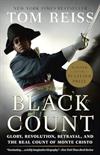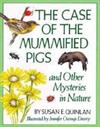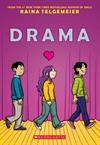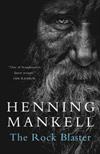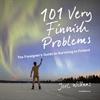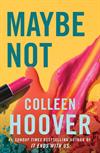
The Serial Killers: A Study in the Psychology of Violence
Registered by Apechild of York, North Yorkshire United Kingdom on 1/29/2015
 This Book is Currently in the Wild!
This Book is Currently in the Wild!
 This Book is Currently in the Wild!
This Book is Currently in the Wild!
1 journaler for this copy...
Got from a UK bookmoocher =)
Comes across as a bit sensationalist and trashy. And spinning the old popular lines, simplistic and glossing over social and economic history with grand sweeping statements. I can't say I was massively impressed by the introduction where they were banging through the history of serial killers and a generalisation of when and why they started. Not considering that back in history, things wouldn't have been reported or examined in detail, the police and the justice system were very different beasts to what we know today. And apparently in history everyone was so poor that they simply didn't have time to be serial killers because they were too busy finding food. Except there's always been rich folks?! And then later stating that some serial killers came about because they were living in poverty and were resentful of the rich around them? And apparently the Victorians were really repressed when it came to sex (and therefore all peoples in history before them) and it was only later on when women started getting jobs and were more untouchable (before then all women were poor and keen to be prostitutes so sex wasn't such a driving factor) that the sex mad appeared. Just... really? Do you honestly believe that simplistic global view of human history? And then there's this little throwawy comment: "The typewriter had been invented in the 1860s, and businessmen soon discovered that women made better typists than men." (p. 7) I get that this book isn't about social or economic history or a particularly female perspective but there are constant little hints here and there that this isn't going to delve particularly deep into the complex thoughts and motivations of people, or how social and economic factors really were or affected people.
So, I had to keep saying to myself: This was written in the 1980s. It is not the author’s fault that the world has since moved on. But then I see my copy is a revised edition from 2007. Still, it’s 2019, so that’s over ten years. And maybe I’m nit picking, but then I come across another idiotic passage, and I think no, this is no good. I mean, here’s what I wrote after just reading the introduction:
Comes across as a bit sensationalist and trashy. And spinning the old popular lines, simplistic and glossing over social and economic history with grand sweeping statements. I can't say I was massively impressed by the introduction where they were banging through the history of serial killers and a generalisation of when and why they started. Not considering that back in history, things wouldn't have been reported or examined in detail, the police and the justice system were very different beasts to what we know today. And apparently in history everyone was so poor that they simply didn't have time to be serial killers because they were too busy finding food. Except there's always been rich folks?! And then later stating that some serial killers came about because they were living in poverty and were resentful of the rich around them? And apparently the Victorians were really repressed when it came to sex (and therefore all peoples in history before them) and it was only later on when women started getting jobs and were more untouchable (before then all women were poor and keen to be prostitutes so sex wasn't such a driving factor) that the sex mad appeared. Just... really? Do you honestly believe that simplistic global view of human history? And then there's this little throwaway comment: "The typewriter had been invented in the 1860s, and businessmen soon discovered that women made better typists than men." (p. 7) (Women have been kept in low paid, menial jobs and nothing else because they’re better at those jobs? End of?). I get that this book isn't about social or economic history or a particularly female perspective but there are constant little hints here and there that this isn't going to delve particularly deep into the complex thoughts and motivations of people, or how social and economic factors really were or affected people.
So, as an account of the facts of crime, it’s probably a very well researched book and by god the guy knows his crimes. It’s interesting I guess from a historical perspective to read about how the FBI was developing profiling – even to read how it was doing at the time of the writing of the book. Imagine what those guys will be doing with the technology available today. It does get a bit grinding at times because there are that many details and facts about that many murders. You can get lost. And he bounces about and returns to things in different chapters, explains the same terms over and over (ok, I get it!!!). And I do feel that he contradicts himself throughout the book, but you get bogged down in overwhelming detail you can’t be bothered to plough back through for the first statement. But those little throwaway comments here and there, the reliance on 50s sex research (by god, what enlightened times – sarcasm) meant that what is subtitled “a study in the psychology of violence”, doesn’t feel like a good study into psychology, and comes across at times like a narrowed minded view on world order. Yes, there are some points he makes where you see the sense. A lot of these serial killers have had very nasty childhoods, with abuse and neglect, often head injuries – lost children that have gotten very messed up. But it’s a sad world out there and not everyone who has such an upbringing (if you could call it that) becomes a serial killer, so what is it about these people? Is it that there’s something wrong with the wiring they’re born with, and the social triggers push them that way? I don’t feel like he really went in to this. Really, this all speaks to me that communities need to pump money, time and effort into children’s services for ALL children in the country if they’re to stop a lot of these social criminal problems that crop up in adulthood.
As I mentioned before, his grasp of social and economic history is woeful. Here is a quote from the update chapter that made me cringe: “Serial murder is a social aberration that has arisen in the last two hundred years and – thanks to modern forensic policing and behavioural science – might effectively cease to happen within the next generation or so. Other once universal forms of crime have been driven out of existence by both technology and society’s willingness to combat them creatively: banditry and slavery, to name just two. So it is not too much to hope that the serial killer might soon go the way of the Viking raider and the Roman gladiator...” (p. 311) So... there’s no slavery globally? No one raids other villages/countries/lands, steals goods, girls, women, whatever, makes off with them, forces them into marriage, rapes them, burns their houses? People don’t beat the crap out of each other for entertainment? We don’t have bandits/pirates anymore? Am I nitpicking? Maybe this book isn’t just not grasping history, but the nature of humanity itself.
This is a view of crime from a male perspective. There was one cringeworthy sex research he mentioned where women are divided into low, medium and high dominance – high being superior and less likely to be a victim. Also the woman who finds the male member beautiful. Not that it’s just women that seem misunderstood.
“It must be recognised that this element of conquest is present in all male sexuality. If it were absent, the male would find the female totally undesireable.” (p.156) Now, I don’t know how the guys feel about this generalisation, but then what is he saying about the gay community? A gay man wanting to “woo” (sorry, limp use of word, can’t think of a better one just now) and seduce the apple of his eye, has no sense of conquest in getting that new man in his life, because female bodies don’t do it for him?
The book also uses zoology studies when noting that serial killers don’t come from privileged backgrounds – they’re poor people from overcrowded slums and this is what pushes them down that road. It’s all the overcrowding. Prepare for another uncomfortable comment: “The zoologist Desmond Morris remarked that cities are ‘human zoos’, and added: “ Under normal circumstances, in their natural habitats, wild animals do not mutilate themselves, masturbate, attack their offspring, develop stomach ulcers, become fetishists, suffer from obesity, form homosexual pair-bonds, or commit murder”. The conclusion to be drawn may be that the crime explosion will continue until such time as the population explosion has been brought under control.” (p 227)
I am left uncomfortable. I can’t claim to be an expert on anything, but I didn’t feel as though this very chunky book delivered on a lot. I’ll leave with a thought: it’s the killers that are remembered in detail, the victims that are churned through as drones of one another and all forgotten. Is that right? Should we even read books about such things (well, yes, if only to try and learn why things like this happen so you can try to prevent it in the future).
Comes across as a bit sensationalist and trashy. And spinning the old popular lines, simplistic and glossing over social and economic history with grand sweeping statements. I can't say I was massively impressed by the introduction where they were banging through the history of serial killers and a generalisation of when and why they started. Not considering that back in history, things wouldn't have been reported or examined in detail, the police and the justice system were very different beasts to what we know today. And apparently in history everyone was so poor that they simply didn't have time to be serial killers because they were too busy finding food. Except there's always been rich folks?! And then later stating that some serial killers came about because they were living in poverty and were resentful of the rich around them? And apparently the Victorians were really repressed when it came to sex (and therefore all peoples in history before them) and it was only later on when women started getting jobs and were more untouchable (before then all women were poor and keen to be prostitutes so sex wasn't such a driving factor) that the sex mad appeared. Just... really? Do you honestly believe that simplistic global view of human history? And then there's this little throwaway comment: "The typewriter had been invented in the 1860s, and businessmen soon discovered that women made better typists than men." (p. 7) (Women have been kept in low paid, menial jobs and nothing else because they’re better at those jobs? End of?). I get that this book isn't about social or economic history or a particularly female perspective but there are constant little hints here and there that this isn't going to delve particularly deep into the complex thoughts and motivations of people, or how social and economic factors really were or affected people.
So, as an account of the facts of crime, it’s probably a very well researched book and by god the guy knows his crimes. It’s interesting I guess from a historical perspective to read about how the FBI was developing profiling – even to read how it was doing at the time of the writing of the book. Imagine what those guys will be doing with the technology available today. It does get a bit grinding at times because there are that many details and facts about that many murders. You can get lost. And he bounces about and returns to things in different chapters, explains the same terms over and over (ok, I get it!!!). And I do feel that he contradicts himself throughout the book, but you get bogged down in overwhelming detail you can’t be bothered to plough back through for the first statement. But those little throwaway comments here and there, the reliance on 50s sex research (by god, what enlightened times – sarcasm) meant that what is subtitled “a study in the psychology of violence”, doesn’t feel like a good study into psychology, and comes across at times like a narrowed minded view on world order. Yes, there are some points he makes where you see the sense. A lot of these serial killers have had very nasty childhoods, with abuse and neglect, often head injuries – lost children that have gotten very messed up. But it’s a sad world out there and not everyone who has such an upbringing (if you could call it that) becomes a serial killer, so what is it about these people? Is it that there’s something wrong with the wiring they’re born with, and the social triggers push them that way? I don’t feel like he really went in to this. Really, this all speaks to me that communities need to pump money, time and effort into children’s services for ALL children in the country if they’re to stop a lot of these social criminal problems that crop up in adulthood.
As I mentioned before, his grasp of social and economic history is woeful. Here is a quote from the update chapter that made me cringe: “Serial murder is a social aberration that has arisen in the last two hundred years and – thanks to modern forensic policing and behavioural science – might effectively cease to happen within the next generation or so. Other once universal forms of crime have been driven out of existence by both technology and society’s willingness to combat them creatively: banditry and slavery, to name just two. So it is not too much to hope that the serial killer might soon go the way of the Viking raider and the Roman gladiator...” (p. 311) So... there’s no slavery globally? No one raids other villages/countries/lands, steals goods, girls, women, whatever, makes off with them, forces them into marriage, rapes them, burns their houses? People don’t beat the crap out of each other for entertainment? We don’t have bandits/pirates anymore? Am I nitpicking? Maybe this book isn’t just not grasping history, but the nature of humanity itself.
This is a view of crime from a male perspective. There was one cringeworthy sex research he mentioned where women are divided into low, medium and high dominance – high being superior and less likely to be a victim. Also the woman who finds the male member beautiful. Not that it’s just women that seem misunderstood.
“It must be recognised that this element of conquest is present in all male sexuality. If it were absent, the male would find the female totally undesireable.” (p.156) Now, I don’t know how the guys feel about this generalisation, but then what is he saying about the gay community? A gay man wanting to “woo” (sorry, limp use of word, can’t think of a better one just now) and seduce the apple of his eye, has no sense of conquest in getting that new man in his life, because female bodies don’t do it for him?
The book also uses zoology studies when noting that serial killers don’t come from privileged backgrounds – they’re poor people from overcrowded slums and this is what pushes them down that road. It’s all the overcrowding. Prepare for another uncomfortable comment: “The zoologist Desmond Morris remarked that cities are ‘human zoos’, and added: “ Under normal circumstances, in their natural habitats, wild animals do not mutilate themselves, masturbate, attack their offspring, develop stomach ulcers, become fetishists, suffer from obesity, form homosexual pair-bonds, or commit murder”. The conclusion to be drawn may be that the crime explosion will continue until such time as the population explosion has been brought under control.” (p 227)
I am left uncomfortable. I can’t claim to be an expert on anything, but I didn’t feel as though this very chunky book delivered on a lot. I’ll leave with a thought: it’s the killers that are remembered in detail, the victims that are churned through as drones of one another and all forgotten. Is that right? Should we even read books about such things (well, yes, if only to try and learn why things like this happen so you can try to prevent it in the future).
Journal Entry 4 by Apechild at Cats Protection League in York, North Yorkshire United Kingdom on Sunday, December 1, 2019
Released 4 yrs ago (12/2/2019 UTC) at Cats Protection League in York, North Yorkshire United Kingdom
WILD RELEASE NOTES:
Going to drop off some books to the Cats Protection League in York tomorrow.
